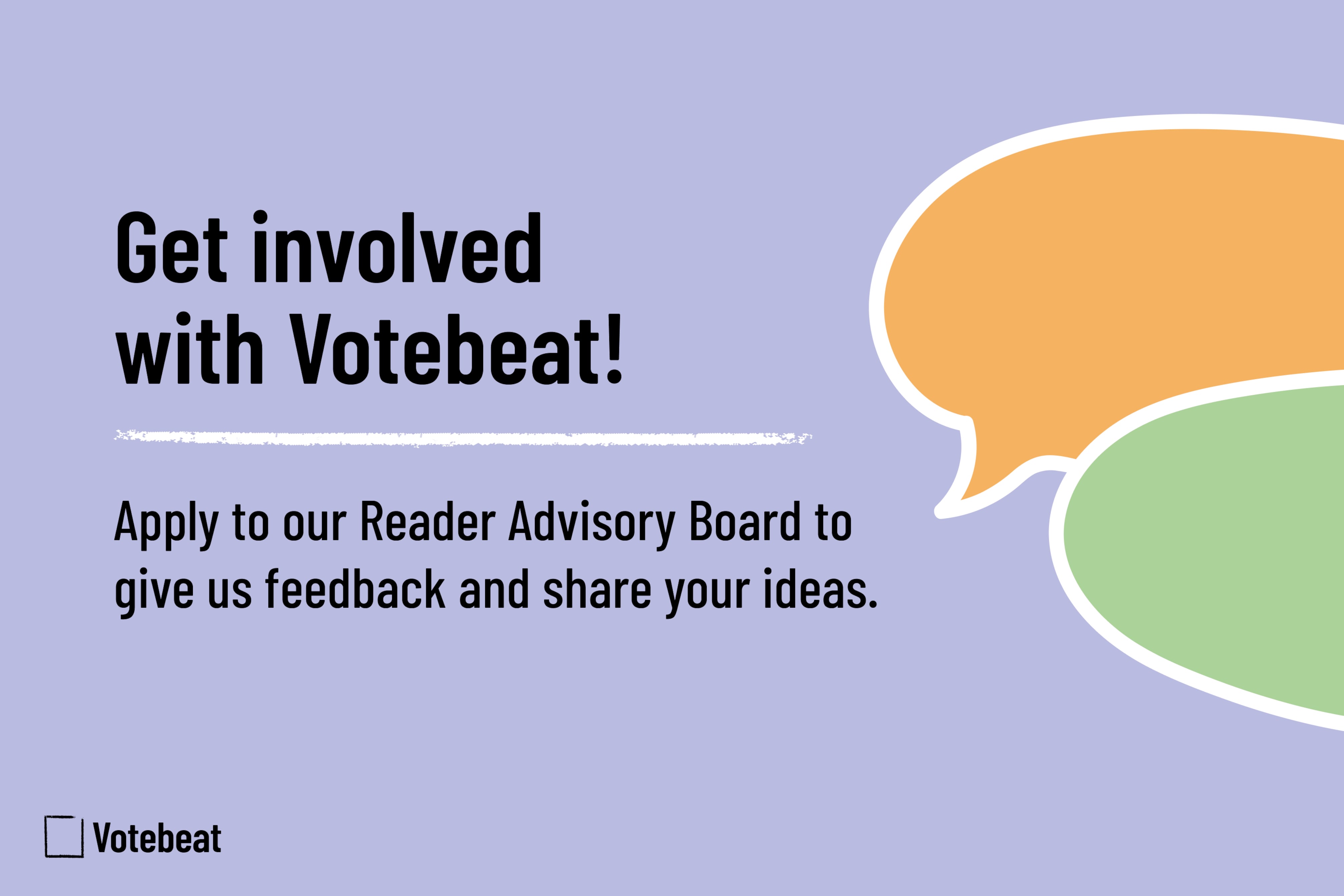Engaging with and listening to readers are central to executing Votebeat’s mission — reporting on election administration in America. We want to hear from readers all the time.
There are many ways to reach us already, but one sustained route will be through our Reader Advisory Board. This board will include members of the public who are eager to help people understand our system of democracy so they can participate in strengthening it.
Here’s more on what our Reader Advisory Board will do, what to expect as a member, and how to get involved.
What is a reader advisory board and why is Votebeat forming one?
Generally, a reader advisory board is a diverse group of people who offer feedback to a newsroom’s journalists. Different news organizations will have different definitions and functions for their boards.
At Votebeat, we want our Reader Advisory Board to help inform our coverage, deepen our ties with the communities we cover, and keep our readers’ needs at the forefront of our reporting. This group would provide feedback to us and help our journalists hear what matters most to our target audiences — and especially what the average voter is thinking about when it comes to casting a ballot. We want to be able to answer your questions and clear up concerns about the voting process through our reporting, but we can’t do that if we don’t know what’s on your mind.
Who should apply to Votebeat’s Reader Advisory Board?
Our ideal Reader Advisory Board membership would include people living in all of the states where we have bureaus — currently Arizona, Michigan, Pennsylvania, Texas, and Wisconsin. We’re also open to including members from other states.
We also want to hear from people with a diversity of life experiences and voting habits. We value the perspectives of habitual voters, first-time voters, absentee voters, in-person voters, and everyone in between. That is a large task, so we likely won’t have our ideal board makeup initially. But if you’re interested in participating at all, we encourage you to apply.
What can a Reader Advisory Board member expect?
We are planning to meet with Reader Advisory Board members three to four times a year, or about once a quarter. Members are expected to serve at least a one-year term. These meetings will be hosted and run by me, Votebeat’s engagement editor, and other Votebeat staffers will often attend as well.
Each meeting will be a structured discussion designed to provide feedback on Votebeat’s journalism and upcoming projects, as well as to ask questions about elections where you live.
To be clear, this is not a space to advocate for political positions or promote talking points. This is not an arena for political debate or organizing. While the question of how politics drives some of the discussions in voting reforms is likely to come up, Votebeat’s ultimate goal is to learn and report about voting and election administration and move the conversation toward solutions to strengthen our democracy. Our Reader Advisory Board is a collaborative space where people of different backgrounds can come together to work with us on this important mission.
Being a Reader Advisory Board member is a commitment, but one we hope will be rewarding for everyone involved.
Is this the only way to be heard by Votebeat staff?
Definitely not! The Reader Advisory Board is the most direct way to get involved in our journalism and contribute to our goal to help inform the public and strengthen American democracy.
Engaging and listening to readers is at the heart of our journalism at Votebeat. You are always welcome and encouraged to reach out with any questions or feedback you may have.
Feel free to email community@votebeat.org, reach out to any of our tips emails, reply to any of our newsletters, DM Votebeat on Facebook, Instagram, or Twitter, or respond to our new reader survey. If you have a news tip that you want to be sure is confidential, we also have a Signal number (201-430-5217) to ensure privacy.
Another easy way to contact us by responding to callouts. We regularly post surveys and forms on our website that ask for your experiences with voting and questions about election administration.
However you might reach out to us, your thoughts really do help us shape our reporting, and every response is very appreciated.
How to apply to join Votebeat’s Reader Advisory Board
If you’re interested in participating, please fill out the application form on this page or at this link. We are currently accepting applications on a rolling basis. If you’re selected for potential participation, you’ll hear from us soon about next steps.
If you have any questions about the Reader Advisory Board or the application process, please email community@votebeat.org.






